1780 – Patriot militia under Colonel William Campbell defeated Loyalist militia under Major Patrick Ferguson at the Battle of King’s Mountain in North Carolina near the border with Blacksburg, South Carolina.
The Patriots charged the hillside multiple times, demonstrating lethal marksmanship against the surrounded Loyalists. Unwilling to surrender to a “band of banditti,” Ferguson led a suicidal charge down the mountain and was cut down in a hail of bullets. After his death, some of his men tried to surrender, but they were slaughtered in cold blood by the Patriot frontiersmen, who wanted revenge for British Lieutenant Colonel Banastre Tarleton’s cruelty to surrendering prisoners at Waxhaws on the Carolina border on May 29, 1780.

1849 – Edgar Allan Poe died under mysterious circumstances. Found delirious on the streets of Baltimore, Maryland four days earlier, “in great distress, and … in need of immediate assistance”, Poe was never coherent long enough to explain how he came to be in that condition. Theories as to what caused Poe’s death include suicide, murder, cholera, rabies, syphilis, and influenza.

1916 – Georgia Tech, um, defeated the Cumberland College Bulldogs, 222-0. The Bulldogs, playing with just 14 players, completed just two passes for a total of 14 yards and rushed 27 times for a negative 96 yards. Georgia Tech never threw a single pass but ran the ball 40 times and gained an almost unbelievable 1,620 yards!
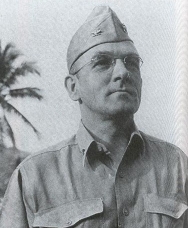
1940 – More than a year before the Pearl Harbor attack a memorandum, sent by Lieutenant Commander Arthur H. McCollum, who “provided the president with intelligence reports on Japan and oversaw every intercepted and decoded Japanese military and diplomatic report destined for the White House, was sent to Navy Captain Dudley Knox, who agreed with the actions described within the memo.
The memo outlined the general situation of several nations in World War II and recommended an eight-part course of action for the United States to take in regard to the Japanese Empire in the South Pacific, suggesting the United States provoke Japan into committing an “overt act of war.” The only way in which the United States would take up arms and fight in Europe’s War was an overt action against the United States by a member of the Axis Power (which Japan was).
The McCollum memo contained an eight-part plan to counter rising Japanese power over East Asia:
A. Make an arrangement with Britain for the use of British bases in the Pacific, particularly Singapore.
B. Make an arrangement with Holland for the use of base facilities and acquisition of supplies in the Dutch East Indies.
C. Give all possible aid to the Chinese government of Chiang-Kai-Shek.
D. Send a division of long range heavy cruisers to the Orient, Philippines, or Singapore.
E. Send two divisions of submarines to the Orient.
F. Keep the main strength of the U.S. fleet now in the Pacific, in the vicinity of the Hawaiian Islands.
G. Insist that the Dutch refuse to grant Japanese demands for undue economic concessions, particularly oil.
H. Completely embargo all U.S. trade with Japan, in collaboration with a similar embargo imposed by the British Empire.
President Roosevelt acted swiftly. The very next day, the Commander-in-Chief of the U.S. Fleet, Admiral James O. Richardson, was summoned to the Oval Office and told of the provocative plan by the President. In a heated argument with FDR, the admiral objected to placing his sailors and ships in harm’s way. Richardson was then fired.
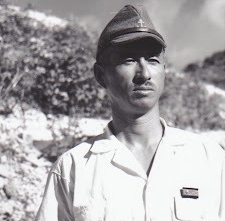
1943 – Rear Adm. Shigematsu Sakaibara, commander of the Japanese garrison on Wake Island, ordered the execution of 98 Americans POWs, claiming they were trying to make radio contact with U.S. forces. The execution of the POWs, who were blindfolded and shot in cold blood, remains one of the more brutal episodes of the war in the Pacific.
After the war, Sakaibara was taken into custody by the American occupation authorities, extradited to Guam, and sentenced to death by a military tribunal for war crimes in connection with his actions in the “Wake Island Massacre”. He was hanged on June 18, 1947.

1944 – At Auschwitz-Birkenau, the Sonderkommando – groups of Jewish male prisoners picked for their youth and relative good health whose job was to dispose of corpses from the gas chambers – learned that the Germans intended to gas them. They decided to take their fate into their own hands, and the group in charge of the third crematorium at the camp, the Birkenau Three Sonderkommando, rebelled.
They attacked the SS with makeshift weapons: stones, axes, hammers, other work tools and homemade grenades. They caught the SS guards by surprise, overpowered them and blew up a crematorium. At this stage they were joined by the Birkenau One Kommando, which also overpowered their guards and broke out of the compound. The revolt ended in failure.
Ultimately, three SS guards were killed – one of whom was burned alive by the prisoners in the oven of Crematorium II – and 250 Sonderkommando were killed. Hundreds of prisoners escaped, but were all soon captured and executed, along with an additional group who participated in the revolt.
1949 – Less than five months after Great Britain, the United States, and France established the Federal Republic of Germany in West Germany, the Democratic Republic of Germany was proclaimed within the Soviet occupation zone. Criticized by the West as an un-autonomous Soviet creation, Wilhelm Pieck was named East Germany’s first president, with Otto Grotewohl as prime minister.

1960 – The first episode of Route 66 aired on CBS. The program had a simple premise: It followed two young men, Buz Murdock and Tod Stiles, as they drove across the country in an inherited Corvette (Chevrolet was one of the show’s sponsors), doing odd jobs and looking for adventure.
Route 66 was different from every other show on television. For one thing, it was shot on location all over the United States instead of in a studio. By the time its run was up in 1964, the show’s cast and crew had traveled from Maine to Florida and from Los Angeles to Toronto. In all, they taped 116 episodes in 25 states.
1960 – In the second of four televised debates, Democratic presidential nominee John F. Kennedy and Vice President Richard Nixon turned their attention to foreign policy issues.
Kennedy’s strategy was to paint the Republican administration in which Nixon served as timid, indecisive, and given to poor strategy planning in terms of the Cold War. Nixon, on the other hand, wanted to portray Kennedy as naive and much too willing to compromise with the Soviets and communist Chinese.
1970 – In a televised speech, President Richard Nixon announced a five-point proposal to end the war, based on a “standstill” cease-fire in place in South Vietnam, Laos, and Cambodia. He proposed eventual withdrawal of U.S. forces, unconditional release of prisoners of war, and political solutions reflecting the will of the South Vietnamese people. The proposals were well received at home, but were rejected by the Communists a few days later.

1985 – Four Palestinian terrorists boarded the Italian cruise ship Achille Lauro shortly after it left Alexandria, Egypt, in order to hijack the luxury liner. The well-armed men, who belonged to the Popular Front for the Palestine Liberation Front (PLF), the terrorist wing of the Palestinian Liberation Organization (PLO) led by Abu Abbas, easily took control of the vessel since there was no security force on board.
The terrorists demanded that Israel release imprisoned PLF members and sought entry to a Syrian port. But when Syria denied the request, the terrorists lost control of the situation. Gathering the American tourists on board, the terrorists randomly chose to kill 69-year-old Leon Klinghoffer. The wheelchair-bound American was shot in the head and thrown overboard.
Klinghoffer’s cold-blooded murder backfired on the terrorists. The world’s outrage forced PLO chief Yassir Arafat to cut PLO ties with the terrorists and to demand that Abbas end the situation. On October 9, Abbas contacted the terrorists, ordered them not to kill any more passengers, and arranged for the ship to land in Egypt.

1991 – Hall of Fame baseball manager Leo “The Lip” Durocher died of natural causes at the age of 86. A controversial and outspoken character, Durocher’s career was dogged by clashes with authority and umpires (95 career ejections as a manager).
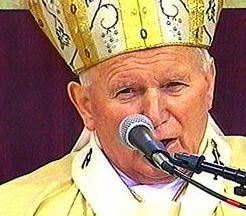
1995 – A crowd of 125,000 people were sitting or standing in Central Park to see Pope John Paul II. The pontiff’s message at the outdoor mass was geared to the role of young people in the church and the world. “You young people will live most of your lives in the next century,” he said. “You must help the holy spirit to shape the social, moral and spiritual character.”
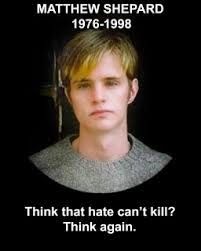
1998 – Aaron Kreifels, a cyclist traveling a back road near Laramie, Wyoming, came across what he thought was a scarecrow by the road. It wasn’t. Kreifels had discovered the battered body of Matthew Shepard, a 21-year old gay student at the University of Wyoming, who was tied to a fence and in a coma.
Shepard had suffered fractures to the back of his head and in front of his right ear. He experienced severe brain stem damage, which affected his body’s ability to regulate his heart rate, body temperature, and other vital functions. There were also about a dozen small lacerations around his head, face, and neck.
Shepard never regained consciousness and died on October 12, 1998. The two assailants who beat a man to death simply because he was gay were captured, convicted, and sentenced to life without parole.
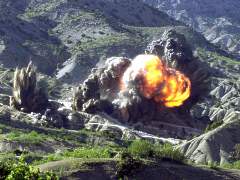
2001 – An American led coalition began attacks on Taliban-controlled Afghanistan with an intense bombing campaign by American and British forces. Logistical support was provided by other nations including France, Germany, Australia and Canada and, later, troops were provided by the anti-Taliban Northern Alliance rebels.
Dubbed “Operation Enduring Freedom,” the invasion of Afghanistan was intended to target terrorist mastermind Osama bin Laden’s al-Qaida organization, which was based in the country, as well as the extreme fundamentalist Taliban government that had ruled most of the country since 1996 and supported and protected al-Qaida.
It was the opening salvo in the United States “war on terrorism” and a response to the September 11, 2001, terrorist attacks on New York and Washington, D.C.
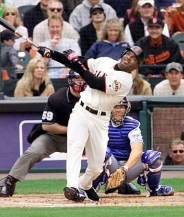
2001 – Barry Bonds of the San Francisco Giants hit his 73rd home run of the season off Los Angeles Dodgers pitcher Dennis Springer. That home run established a Major League record (which still stands) for most homers in a season.
Please note that I never said, nor do I believe that Bonds accomplished his record without some help.
2003 – Actor Arnold Schwarzenegger was elected governor of California, the most populous state in the nation. Despite his inexperience, Schwarzenegger came out on top in the 11-week campaign to replace Gray Davis, who had earlier become the first United States governor to be recalled by the people since 1921. Schwarzenegger was one of 135 candidates on the ballot, which included career politicians, other actors, and one adult-film star.
Compiled by Ray Lemire ©2014 RayLemire.com. All Rights Reserved.
You may not, under any circumstances, reproduce, record, publish, republish, post, transmit, publicly display, publicly exhibit or distribute any articles or photographs on RayLemire.com without obtaining the express written consent of the Operator.